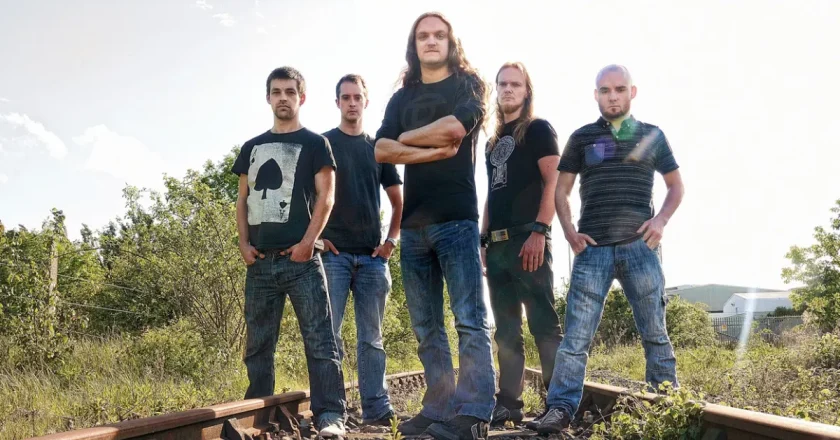Aeon Zen: A Unique Journey in Progressive Metal
Formation and Early Years
Aeon Zen was founded in 2008 in Cambridge, England, by the talented musician and producer Rich Hinks. As the driving creative force, Hinks is not only the band’s principal composer and producer but also plays multiple instruments, crafting the band’s distinct sound. Originally a solo artist, Hinks created Aeon Zen to push the boundaries of progressive metal with intricate harmonies and complex rhythms that offer listeners a distinct musical experience.
Aeon Zen’s music incorporates elements from progressive metal, rock, and power metal, blending influences from progressive giants like Dream Theater and Symphony X, while crafting a style all its own. In the band’s early albums, Hinks showcased his versatility by playing guitar, bass, and keyboards, shaping Aeon Zen’s unique sound from the ground up.
Members and Musical Evolution
Aeon Zen’s lineup has seen changes over the years, with Rich Hinks remaining the central figure on guitar, bass, and production while various vocalists and drummers contributed to enrich the band’s sound. Notable members and collaborators include Andi Kravljaca (vocals), Matt Shepherd (guitar), Steve Burton (drums), and Shaz (keyboards), each adding depth and dimension to the band’s compositions.
Discography and Albums
1. A Mind’s Portrait (2009)
The debut album A Mind’s Portrait marked Aeon Zen’s impressive entry into progressive metal, combining melodic elements with complex rhythms in a way that set the foundation for the band’s signature style.
2. The Face of the Unknown (2010)
Their sophomore album showcases musical growth, with more elaborate compositions and intricate melodies, adding a layer of progressive rock to the band’s already dynamic sound.
3. Enigma (2013)
Enigma dives into darker and more introspective themes, highlighting the band’s skill in progressive metal with versatile vocal sections and inventive guitar solos that immerse listeners in an intense experience.
4. Ephemera (2014)
With Ephemera, Aeon Zen reached new heights in musical storytelling. This thematic album takes listeners on a journey with captivating instrumental sections and evolving musical themes.
5. Inveritas (2019)
Inveritas demonstrates Aeon Zen’s mastery in progressive metal. The album is rich with complexity and technical prowess, featuring impressive melodies that showcase the band members’ virtuosity.
6. Transversal (2021)
Transversal, Aeon Zen’s final album, serves as an emotional farewell. With profound and complex compositions, this album is the band’s closing message to their fans, filled with intensity and depth.
Musical Style and Influence
Aeon Zen goes beyond traditional progressive metal, delivering music with technical skill, emotional depth, and philosophical themes. Their expansive melodies and intricate rhythms have left a lasting impact, especially among European fans, creating a dedicated following within the progressive metal scene.
Conclusion
Aeon Zen has solidified its place in progressive metal with an innovative approach and intense compositions. Each album represents a stage in their evolution, blending complex compositions with a deeply thematic storytelling style. Aeon Zen’s impact on fans of progressive metal is enduring, as they continue to expand the artistic possibilities of the genre.





